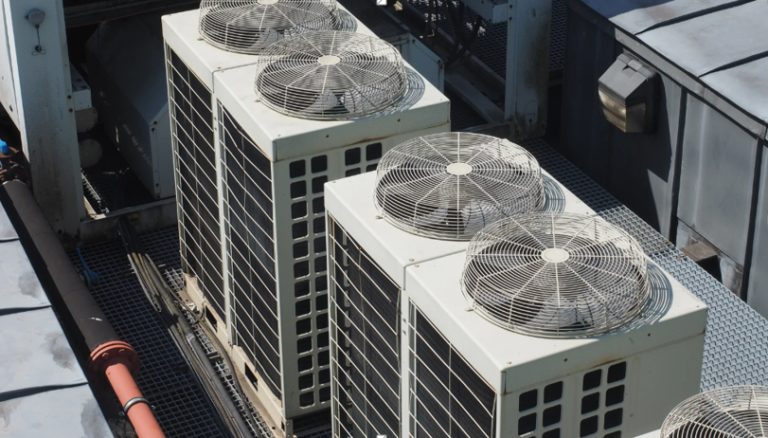How Electricians Help Businesses Stay Energy Efficient

In today’s competitive business landscape, efficiency isn’t just a buzzword; it’s a cornerstone of profitability and sustainability. For businesses, energy consumption represents a significant operational cost, and finding ways to reduce it can lead to substantial savings and a positive environmental impact. While many companies focus on upgrading to energy-efficient appliances or switching to LED lighting, the role of a skilled electrician in achieving and maintaining energy efficiency often goes overlooked. These professionals are not just there for emergencies or new installations; they are critical partners in optimizing a business’s electrical infrastructure for peak performance and minimal waste.
The Hidden Costs of Inefficient Electrical Systems
Many businesses operate with electrical systems that are, unbeknownst to them, hemorrhaging energy and money. Outdated wiring, faulty connections, and inefficient motors can silently drive up utility bills. For instance, according to the U.S. Energy Information Administration, commercial buildings account for approximately 18% of total U.S. energy consumption. A significant portion of this can be attributed to preventable inefficiencies. Think about flickering lights, warm circuit breakers, or motors that hum louder than they should – these are all potential indicators of underlying problems that lead to energy waste and, worse, potential safety hazards. Addressing these issues proactively through professional electrical repair services can transform a business’s energy profile.
Proactive Strategies for Energy Savings
Electricians offer a range of services that go beyond emergency fixes, playing a vital role in a business’s proactive energy management strategy.
1. Comprehensive Energy Audits
The first step towards energy efficiency is understanding your current consumption patterns. A professional electrician can conduct a thorough energy audit, meticulously examining your entire electrical system. This audit goes beyond simply looking at your power bill. It involves:
- Infrared Thermography: Identifying hot spots in electrical panels, connections, and equipment, which indicate excessive resistance and energy loss.
- Power Quality Analysis: Detecting issues like voltage sags, surges, or harmonics that can damage equipment and reduce efficiency.
- Load Analysis: Measuring the actual power consumption of various equipment and circuits to pinpoint energy hogs.
The data gathered from an energy audit provides a clear roadmap for targeted improvements, ensuring that investments in efficiency upgrades are made where they will have the greatest impact.
2. Upgrading to Energy-Efficient Lighting
Lighting typically accounts for a substantial portion of a commercial building’s electricity use. While many businesses have already made the switch to LED, an electrician ensures these systems are installed optimally for maximum efficiency and longevity. They can advise on:
- Smart Lighting Controls: Occupancy sensors, daylight harvesting systems, and programmable timers reduce energy consumption by ensuring lights are only on when and where they are needed. Case studies consistently show that integrating smart controls can lead to 30-60% energy savings in lighting alone.
- Optimized Fixture Placement: Ensuring light is distributed effectively, reducing the need for excessive fixtures or higher wattage bulbs.
- Proper Ballast Selection: For fluorescent systems, matching the right ballast to the lamp is crucial for efficiency.
3. Optimizing Motor and HVAC Systems
Motors are ubiquitous in commercial settings, powering everything from HVAC systems and industrial machinery to pumps and fans. Inefficient motors are a major energy drain. An electrician can help by:
- Variable Frequency Drives (VFDs): Installing VFDs allows motors to operate at varying speeds, matching the load requirements precisely. This can lead to significant energy savings, especially in HVAC systems, where motors often run at full speed even when not necessary.
- Motor Efficiency Upgrades: Replacing old, inefficient motors with high-efficiency models, particularly NEMA Premium® efficient motors, can yield substantial long-term savings.
- Regular Maintenance and electrical repair services: Ensuring motors are properly lubricated, balanced, and free from electrical faults prevents premature wear and maintains optimal energy performance.
See also: How 5G Will Transform the Internet of Things
4. Power Factor Correction
Many businesses, especially those with numerous inductive loads (like motors and transformers), suffer from a poor power factor. This means they are drawing more current than necessary to do the work, leading to higher utility bills and potential penalties from power companies. Electricians can install power factor correction capacitors, which improve the power factor, reduce reactive power, and alleviate the load on transformers and distribution equipment, translating directly into lower energy costs.
The Long-Term Benefits of Professional Electrical Expertise
Beyond the immediate cost savings, partnering with skilled professionals for your electrical needs offers several long-term advantages:
- Increased Equipment Lifespan: Properly maintained and optimized electrical systems reduce stress on equipment, prolonging its operational life and reducing replacement costs.
- Enhanced Safety: Energy inefficiencies often stem from underlying electrical problems that can pose fire hazards or electrical shock risks. Addressing these through routine electrical repair services ensures a safer working environment.
- Reduced Carbon Footprint: Lower energy consumption directly translates to a smaller environmental impact, aligning with corporate sustainability goals and appealing to eco-conscious customers.
- Improved Reliability: A robust and efficient electrical system is less prone to unexpected outages and downtime, ensuring continuous business operations.
Conclusion
For businesses aiming to cut costs, enhance operational efficiency, and contribute to a greener future, the expertise of a qualified electrician is indispensable. They offer far more than just fixing problems; they are strategic partners who can transform your energy consumption profile through comprehensive audits, strategic upgrades, and diligent maintenance. Investing in professional electrical services isn’t just an expense; it’s an investment in your business’s long-term profitability, safety, and sustainability. Don’t let hidden electrical inefficiencies drain your resources. Proactively engage with electrical professionals to unlock significant energy savings and fortify your business for the future.





